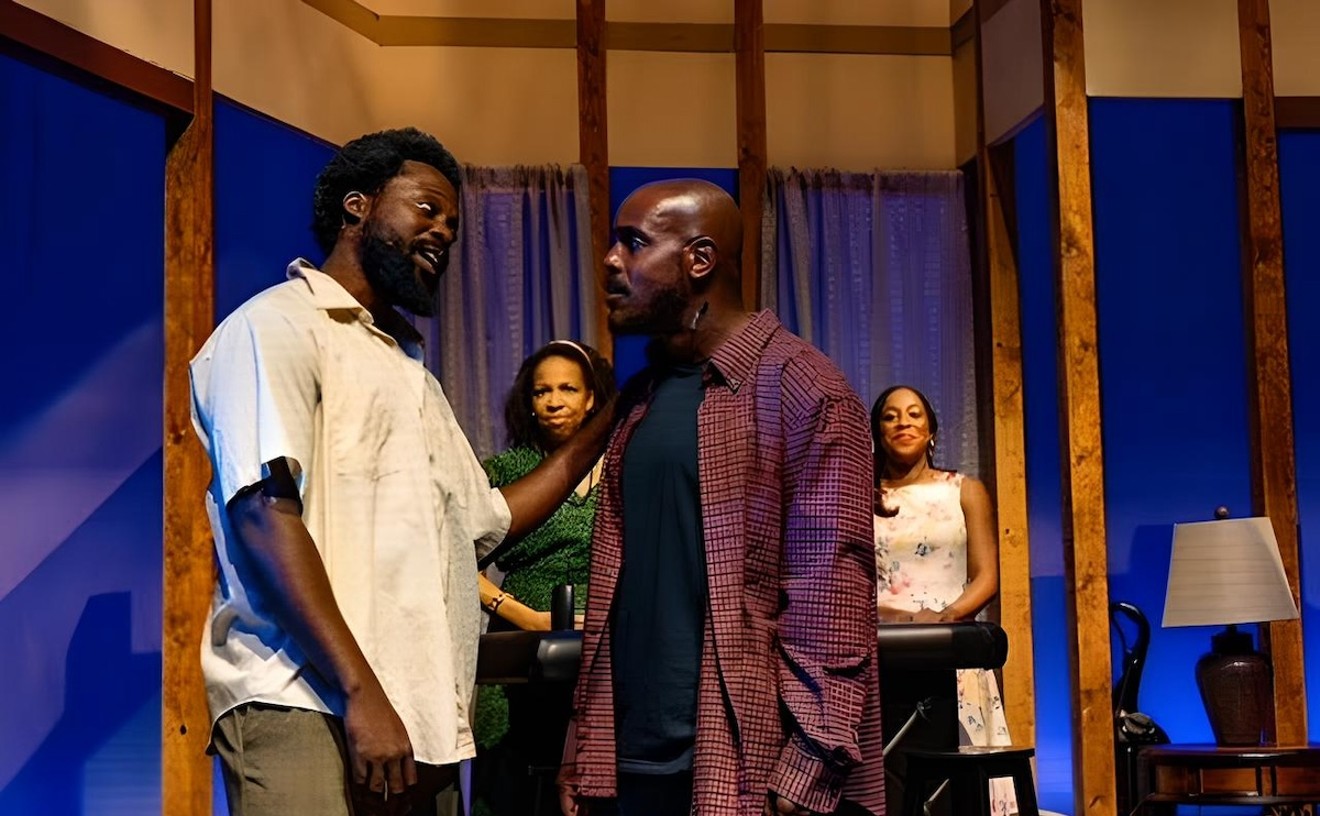Hosni Mubarak finally ceded power and resigned as president of Egypt last week. It's not the first time in history, nor will it be the last, where an oppressive regime has been overthrown or forced into exile. Heck, we have one 90 miles south of here, that's way overdue for change.
Eventually, people will either force change, or look for it somewhere else. Spase Cadets Foundation's stage play, Lil Haiti: The Untold Story, which has a one-night show at 7 p.m. on Friday, chronicles the struggle of Haitian immigrants who have suffered taking the inimitable journey from their own sometimes oppressed and always impoverished island nation to freedom in South Florida. The play and world events got Cultist thinking of other evil dictators and the undying search for freedom of their people as depicted in film. Here then are our top five films about oppressive governments and regimes.
1. Schindler's List (1993)
Based on the true story of Oskar Schindler, the German businessman who managed to save over 1,000 Jews from being gassed at the Auschwitz concentration camp, Schindler's List stands as the apex of films about barbaric dictators and their victims' escape to freedom. Schindler initially exploits Jewish laborers who work for very little pay but after witnessing the carnage of the Holocaust first hand, he turns his factory into an impromptu refuge. He takes on more and more Jewish workers to save them from certain death. The film won seven Oscars in 1993, including Best Picture, Best Director and Best Screenplay.
2. Hotel Rwanda (2004)
Hotel Rwanda also tells the true story of an ordinary man who reluctantly rescues over a thousand people from being victims of atrocities at the hands of an oppressive government. Paul Rusesabagina manages a hotel in Rwanda, and when civil war erupts, he witnesses the Hutu militia dragging people from their homes and beating them to death in the streets. Paul uses his hotel as a secret sanctuary for refugees escaping the genocide that eventually killed over a million people.
3. The Last King of Scotland (2006)
Forest Whitaker won the Oscar for Best Actor for his portrayal of the infamous and brutal Ugandan dictator Idi Amin. The Last King of Scotland is told through the story of Nicolas Garrigan, a young Scottish doctor who travels to Uganda to lend his hand and expertise to one of the impoverished nation's hospitals. He meets and begins an unlikely friendship with Amin, who makes the young physician one of his closest advisors. But Garrigan eventually begins to discover Amin's brutality and violence brought on by his paranoia over fears of being assassinated. Garrigan, who Amin forbids to return home, looks for a way to escape with his life.
4. The Killing Fields (1984)
Sam Waterson stars as New York Times journalist Sydney Schandberg, who covered the Cambodian civil war during Khmer Rouge leader Pol Pot's Year Zero cleansing campaign in 1973. Schandberg is assisted by local Dith Pran and the two from a strong friendship as they cover the insanity of the war. When the U.S. pulls its troops out, Pran sends his family with them but stays behind to help Schandberg. Things get even more dangerous when Khmer Rouge engages in war with Vietnam. Schandberg returns to New York, but Pran is left behind. The reporter then begins a campaign to locate his friend and save him from the atrocities of the war. Hang S. Ngor won the Oscar for Best Actor in a Supporting Role as Pran.
5. Salvador (1986)
James Woods stars as Richard Boyle in Oliver Stone's volatile film about an American photojournalist who travels to El Salvador to cover the 1980 military dictatorship and the assassination of Archbishop Oscar Romero. Boyle hoped to score an easy story about the nation's political turmoil but soon discovers that things are deteriorating quicker than reported. He looks to get out, but falls in love with a local woman and tries to get her back to the States with him. The film features Stone's usual political viewpoints as he makes critical commentary over the U.S.'s support of El Salvador's right wing military and the death squad that eventually killed Archbishop Romero.
Catch more tales of oppression and freedom at the Spase Cadets Foundation production on Saturday at 7 p.m. at Little Haiti Cultural Center (212 NE 59 Ter., Miami). Tickets cost $20. Call 786-413-8045.
Follow Cultist on Facebook and Twitter @CultistMiami.











